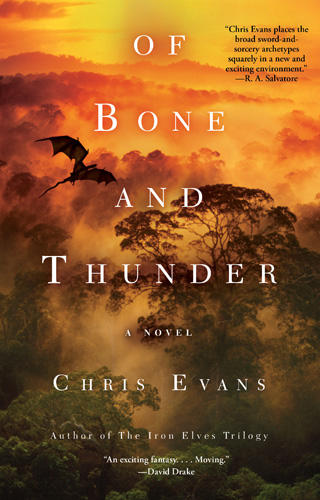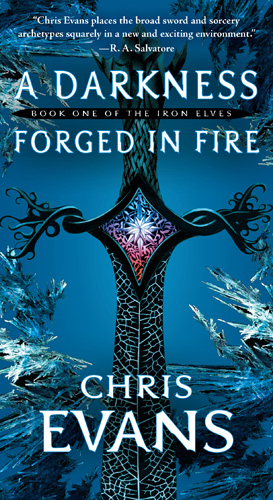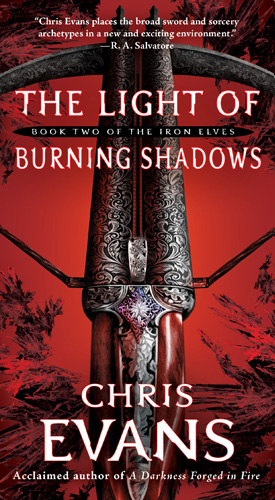It’s not often an author gets on television, let alone a national program, with her first book, so I am very happy with how she performed. I think being an editor is sometimes like being a parent. You spend a lot of time and energy preparing to send them out into the world to make you money so you can retire in style (that’s what parenting is basically about, right?) So, what happens now? We will target all the network shows again with a press package that will include glossy photos of the author and some of the women soldiers in the book. Why photos? TV is a photogenic medium and we need to get their attention. We’ll include a list of all the media the book has received so far (if you’re curious, go to google news then type in “Band of Sisters”) and we’ll also tell them what’s coming up like the ten plus satellite radio interviews that will in turn get broadcast to over 500 affiliates next week (and this is at no cost to the publisher, another publicity tool I’ll talk more about.)
Since the broadcast on Thursday the book jumped on Amazon to the 1,500 range and has been bouncing around there since. We get numbers from Amazon weekly (mega publishers get this info minute by minute) so I will let you know what that really means. Whatever the number, it’s a good sign. We’ve also been receiving re-orders from accounts, the chains and the wholesalers. Early re-orders are an indication that the ROM (rate of movement) is robust, another good sign. This is a better indicator than Amazon. My very rough guesstimate is that Amazon sales are around 10% of total sales. The bulk of book purchases are still done in brick and mortar stores.
So now we’re faced with the oh-so-ulcerific challenge of figuring out how many books to reprint. Obviously, going back to press is a nice thing, although one could look at it as an indication that you didn’t print enough books in the first place. But you have to remember this business is one of perception. Going back to press signals to the accounts, the reviewers, the bookers and everyone else that there is DEMAND for this book. Of course, demand isn’t infinite. Books, ahem, have a shelf life, so there is a significant impetus to strike while the iron’s hot.
On the writing side, I’m deep into researching book two and looking at cover treatments in stores and online to suggest for A Darkness Forged in Fire. This is a lot of fun as it’s the first time I’ve ever done it for myself.






HUGE congratts to you guys!!!
Also thanks for the info as always. I’d been super curios about the average sales from Amazon and am glad to learn this. Going back to press is awesome for the author too, but I can imagine how stressful it would be for you guys.
Have fun with your cover! I never look twice at a book if I hate the cover unless I can’t find anything else to read. Sad…but true. I nearly didn’t read several AMAZING books by authors I now worship because of the covers. I’m wondering now, how much impact the cover has on sales?
Thanks. I should make it clear that this is a huge team effort. The art department have to do up the press packets in record time, convert jpegs and so on. The sales force have to get in touch with all their contacts and then follow up which can mean hours on the phone or email. Production need to coordinate with our printers to see who can turn around the book quickly, do they have the right paper on hand, are the presses booked for bigger run books etc.
I have no idea what impact a cover has. Conventional wisdom says a bad cover turns people off, but there are some huge sellers out there with atrocious covers, and conversely, some of the nicest covers ever designed are on books in remainder bins. Perhaps more salient is whether or not a cover accurately conveys what’s inside. If a reader feels cheated or misled by the cover the only word-of-mouth you’ll generate will be negative.
Well that is SO true!
Thanks, Dude:-)
Congratulations, Chris — it’s fun to follow this from the editor’s side instead of the author’s for once, and to see the editor be as excited about and committed to it as the author is. I think too many people assume that’s not the case.
Thanks. I take immense pride in my authors’ successes. Sure, a part of me wants them to succeed because it reflects on me, but mostly it’s because I’ve come to know and respect them, and share their vision. When I changed jobs from Ballantine to Stackpole the biggest compliment I got was that authors followed me. These author/editor relationships are, of necessity, based on business, but as I’m sure you know from your own experience, they can often become real and lasting friendships. And perhaps most interesting (it certainly was to me) was how little editing an editor does compared to managing, listening, counseling etc. Often times the best thing you can do is just listen and be there.
I really enjoy reading posts like this too because I’m not familiar with the editor’s side of the table. It makes the “writing the book” side seem easy in comparison.
Happy to offer a glimpse of the Dark Side.